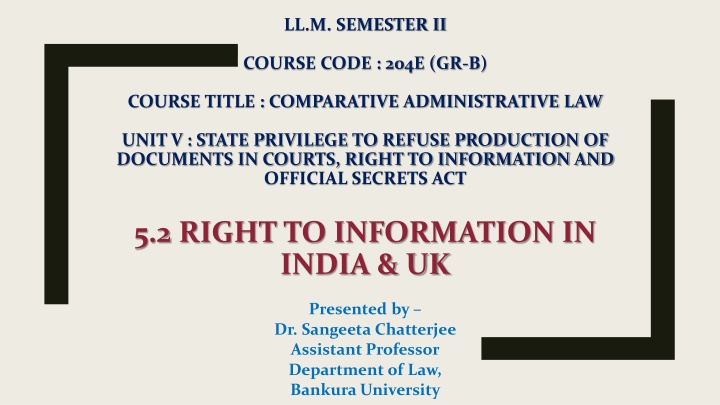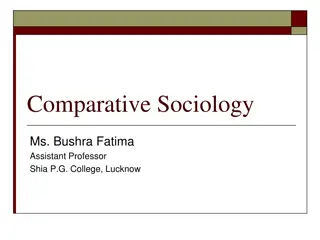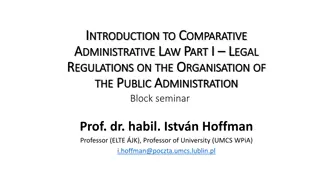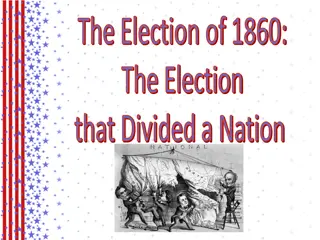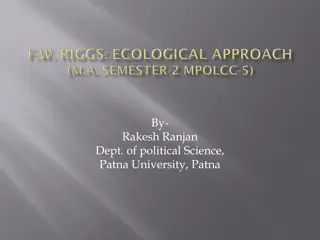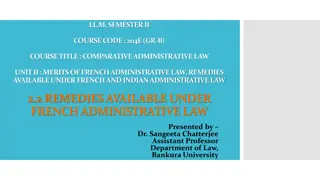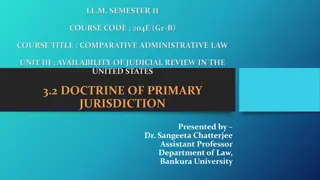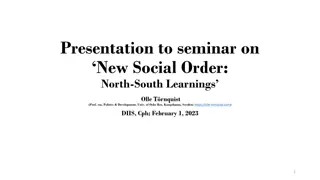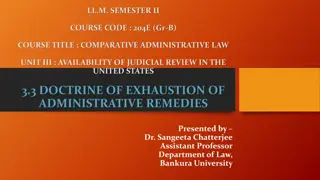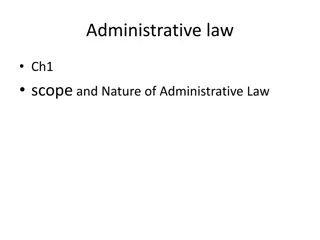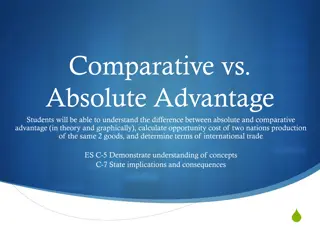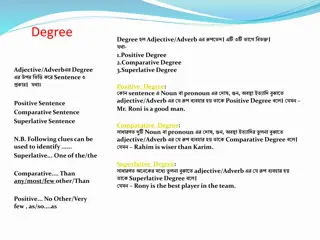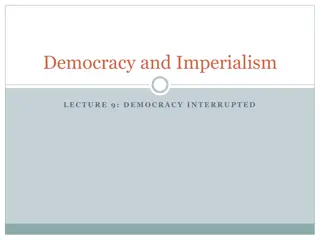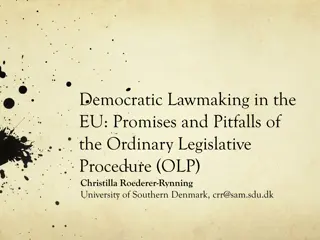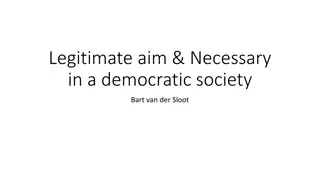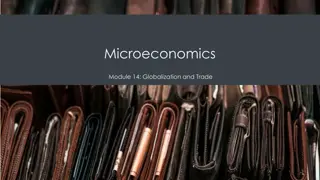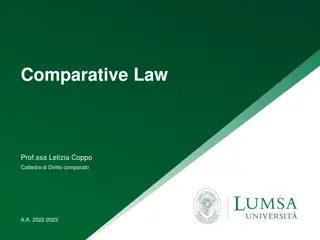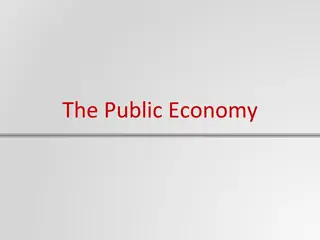Comparative Administrative Law: Right to Information in Democratic Set-Up
The right to information is crucial in a democratic society, balancing transparency with national security interests. Explore the significance of the right to information, its legal background in the US and Great Britain, and its impact on governance and citizen participation.
Download Presentation

Please find below an Image/Link to download the presentation.
The content on the website is provided AS IS for your information and personal use only. It may not be sold, licensed, or shared on other websites without obtaining consent from the author.If you encounter any issues during the download, it is possible that the publisher has removed the file from their server.
You are allowed to download the files provided on this website for personal or commercial use, subject to the condition that they are used lawfully. All files are the property of their respective owners.
The content on the website is provided AS IS for your information and personal use only. It may not be sold, licensed, or shared on other websites without obtaining consent from the author.
E N D
Presentation Transcript
LL.M. SEMESTER II COURSE CODE : 204E (GR-B) COURSE TITLE : COMPARATIVE ADMINISTRATIVE LAW UNIT V : STATE PRIVILEGE TO REFUSE PRODUCTION OF DOCUMENTS IN COURTS, RIGHT TO INFORMATION AND OFFICIAL SECRETS ACT 5.2 RIGHT TO INFORMATION IN INDIA & UK Presented by Dr. Sangeeta Chatterjee Assistant Professor Department of Law, Bankura University
INTRODUCTION In a Democratic set up, the people have a right to know every public actand conductdischarged by their public functionaries. The right to know is necessary outcome of the concept of freedom of speech and expression. At the same time open Government does not mean that the whole government transactionsare to be carried out in the market place. To cover with veil of secrecy the matters relating to national safety and security is not in thegeneral public interest. In these sense, the Right to Know has to be countered balance in just and reasonableconstitutional norms. Information and communication are powerful tools and have a potential to shape and shake social and political development of the society. The right to know the truth is paramount and it must outweigh the right to propertyand otherpersonal rights.
SIGNIFICANCE OF RIGHT TO INFORMATION There is a wide information gap in our legal system in the matrix of various rights and freedoms enshrined in our Constitution. Article 19 confers upon every citizen a fundamental right called freedom of speech and expression. In order to meaningfully enjoy this freedom, a citizen must also have an ancillary right to secure all necessary information on matters of public interests from public authorities. Such a right is a sine qua non of an open, democratic, responsive and responsible polity. Such polity can throb and survive if its citizens are sufficiently informed and kept informed. The right to information will enable the citizens to criticize comments and approve policies and programmes of the rulers.
BACKGROUND The US Constitution, the oldest written Constitution of the world, does notcontain specific right to information. However, the US Supreme Court has read this right into the First Amendment of the Constitution. It has granted access to information where there is a tradition of openness to information in question and where access contributes to the functioning of the particularprocess involved. The Administrative Procedure Act, 1946 was the first enactment which provided a limited access toexecutive information. The US Congress has passed the Freedom of Information Act, 1966, which gives every corporate or individual, regardless of nationality, a legally enforceable right of access to government unpublished documents which the administration may be tempted to keep confidential.
POSITION IN GREAT BRITAIN The Common Law did not favour this right of disclosure of information. Section 28(1) (i) of the Crown Proceedings Act 1974 provides that in any civil proceedings .to which Crown is a party, the Crown may be required by the court to make discovery of documents and produced those documents for inspection . It is also provided that the Crown may be required by the court to answer interrogatories . Smith v. East India Co, 1845 and Beatson v. Skene, 1860 are noteworthy illustrations of early setbacks. In the former the court disallowed the request of disclosure of certain documents in court as it amounted to restrain the freedom of communication between the East India Company and its Board of Control. In the other case the court refused the compulsion of production of certain documents regarding a court of inquiry conducted by the secretary of state. Lord Chancellor Kilmuier in a later case in 1942 stated two grounds when such a crown privilege for documents can be claimed: (a) the disclosure of the contents of the particular documents would injure the public interest, e.g., by endangering public security, or prejudicing diplomatic relations; and (b) the document is of such a class which the public interest requires to be withheld from production. This rigid position, however, was a little liberalized in a later case in 1968 in which it was held that inspection by the court of documents could not cause harm.
UK FREEDOM OF INFORMATION ACT, 2000 U.K. has enacted the Freedom of Information Act, 2000. It is a statute enacted by the Parliament of U.K. in order to create a public right of access to information held by public authorities. This Act has permitted the disclosure of public information. However, the Freedom of Information Act, 2000 has created a statutory right for access to information in relation to bodies that exercise functions of a public nature and three different kinds of such bodies have been covered under the Act Public Authorities, Public Companies and Designated Bodies Performing Public Functions. The Act has also provided eight exemptions under which disclosure of certain types of information are exempted, which areas follows:- (i) Information accessible by other means. (ii) Information belonging to security services. (iii) Information contained in court records. (iv) Information, disclosure of which would infringe parliamentary privilege. (v) Information held by the House of Commons or the House of Lords, where disclosure would prejudice the effective conduct of public affairs. (vi) Information obtainable under the Data Protection Act, 1998 or whose release would breach the data protection principles. (vii) Information provided in confidence. (viii) Information, disclosing of which is prohibited by an enactment, incompatible with European Union obligation or would commit a contempt of court.
POSITION IN INDIA The formal recognition of a legal RTI in India occurred more than two decades before legislation was finally enacted, when the Supreme Court of India ruled in State of U.P. v. Raj Narain, 1975 that the right to information is implicit in the right to freedom of speech and expression explicitly guaranteed in Article 19 of the Constitution of India. In Bennett Coleman & Co. v. Union of India, 1973, the right to information was held to be included within the right to freedom of speech and expression guaranteed by Art. 19 (1)(a). In S.P. Gupta v. Union of India, 1982 the right of the people to know about every public act, and the details of every public transaction undertaken by public functionaries was described. In Peoples Union for Civil Liberties v. Union of India, 1997 the Supreme Court observed that Right of information is a facet of the freedom of speech and expression as contained in Article 19(1)(a) of the Constitution of India. Also in Secretary, Ministry of Information & Broadcasting v. Cricket Assn. of Bengal, 1995 the SC held that the airwaves were a public property and its distribution among the government media and the private channels should be done on equitable basis as the freedom of speech included the right to impart and receive information from electronic media.
RIGHT TO INFORMATION ACT, 2005 IN INDIA The Right to Information Act, 2005 is enacted to provide for establishment of the practical regime of Right to Information forcitizensof India. It has replaced the previous Freedom of Information Act, 2002. According to the provisions of this Act, any citizen of India may request to get information from a public authority or a body of Government or Instrumentality of State and the authorityconcerned is bound to reply expeditiously orwithin 30 days. Every democracy requires an informed citizenry and transparency of information which are vital to its functioning and also to control corruption and to hold Governments and their instrumentalitiesaccountable to thegoverned. But, revelation of information in actual practice is likely to conflict with other public interests including efficient operations of the Governments, optimum use of limited fiscal resources and the preservation of confidentialityof sensitive information. As such, it is necessary to harmonise these conflicting interests while preserving the paramountcyof the democratic ideal. Due to these reasons, it is expedient to provide for furnishing certain information to citizenswho desire to have it. For this purpose, this Act has been passed.
RIGHT TO INFORMATION UNDER THE ACT Information includes any mode of information in any form of record, document, e-mail, circular, press releases, contract, sample, electronicdata etc. The right to information covers inspection of work, document, record, and its certified copy and information in the form of diskettes, floppies, video cassettes in electronic forms, tapes or stored information in computers etc. Information can be provided on written request or request by electronic means with payment of nominal fee. Penalty for refusal of application or for not providing information within 30 days is Rs. 250 per day, amount should notexceed Rs. 25,000. but the total
RESTRICTIONS UNDER THE ACT Section 8 of the Act provides restrictions on information, disclosure of which would prejudiciallyaffect the Sovereignty and integrity of India, security, strategic, scientific or economic interest of the State, relations with foreign States; Forbidden information, disclosure of which would cause a breach of privilege of Parliament or State Legislature; Information relating to commercial confidence, trade secrets or intellectual properties, the disclosure of which would harm the competitive position of a third party; Information on fiduciary relationship; Confidential information of foreign land; Information relating to the physical safety of person; Cabinet papers; Information relating to personal information; and Information prohibited under the Official Secrets Act, 1923.
RIGHT TO INFORMATION VS. RIGHT TO PRIVACY In India, Section 8(1)(j) of the Right to Information Act, 2005 deals with the protection of Privacy. According to Section 8(1)(j) of the Act, if the information is personal causing unwarranted invasion of Privacy and serves no public interest, then the information cannot be disclosed unless the Central Public Information Officer (CPIO) or State Public Information Officer (SPIO) or the appellate authority is of the opinion that the disclosure of information servesa largerpublic interest. When this section is read as a whole, it is clear that, personal information means information regarding third party . It does not apply if the information seeker wants information about himself or his case, as the question privacy does not arise in such cases. Therefore, information can be denied only if the information seeker is seeking information about a third party and such information involves the Privacy of the individual. It is also to be noted that the Public Information Officer (PIO) and not the individual whose information is asked to bedisclosed can deny information. Also, this section is specifically concerned with Individual Privacy and does not consideranyother body.
CRITICISM The right to information has a definite implication for courts also. People have a right to access courtrooms and court judgments, irrespective of the fact whether it affects them individually orgenerallyas a memberof the community. Right to information has also another dimension. The Bhopal gas tragedy and its disaster syndrome could have been avoided, had the people known about the medical repercussions and environmental hazards of the deadly gas leaked from the Union Carbide chemical plantat Bhopal. Therefore, the government has a duty to provide people baseline health information around existing hazardous plants. Failure to undertake such studies and to provide information to people must rendergovernment liable. In India, bureaucrats place serious difficulties in the way of the public s legitimate access to information. There is a strong public feeling against secrecy of any kind in the administration of government. The secrecy system has become much less a means by which government protects national security than a means by which the government safeguards its reputation, dissembles its purpose, buries its mistakes, manipulates its citizens and maximizes its powerand corrupts itself.
CONCLUSION There is a need for administrative secrecy in certain cases. No one wants classified documents concerning national defence and foreign policy to be made public till after the usual period of 35 years is over. Secrecy may also be claimed for other matters enumerated in the Right to Information Act, 2005. But the claims of secrecy, generally by the government and public bodies, may play havoc with the survival of democracy in India. Because of the constraints of the Official Secrets Act, 1923, which was drafted to suit the needs of a foreign rule in India, the claims of informing the public are ignored. The government has unlimited powers to classify documents as confidential with impunity. This may also seriously jeopardise the people s right to know if the powerof withholding information is not properly exercised.
REFERENCE : 1. Dr. I. P. Massey, Administrative Law, Eastern Book Company, Lucknow, 8thEdition, 2012. 2. Right to Information : A Comparative Study, 6 chapter 6.pdf, https://shodhganga.inflibnet.ac.in/bitstream/10603/122963/7/6 %20chapter%206.pdf, visited on 10.03.2020. 3. Caesar Roy, Right to Information and it s Significance to ensure Good Governance in India, SSRN-id2343109.pdf, https://poseidon01.ssrn.com/delivery.php?ID=6510251101211090 9600409908511211, visited on 04.06.2020.
